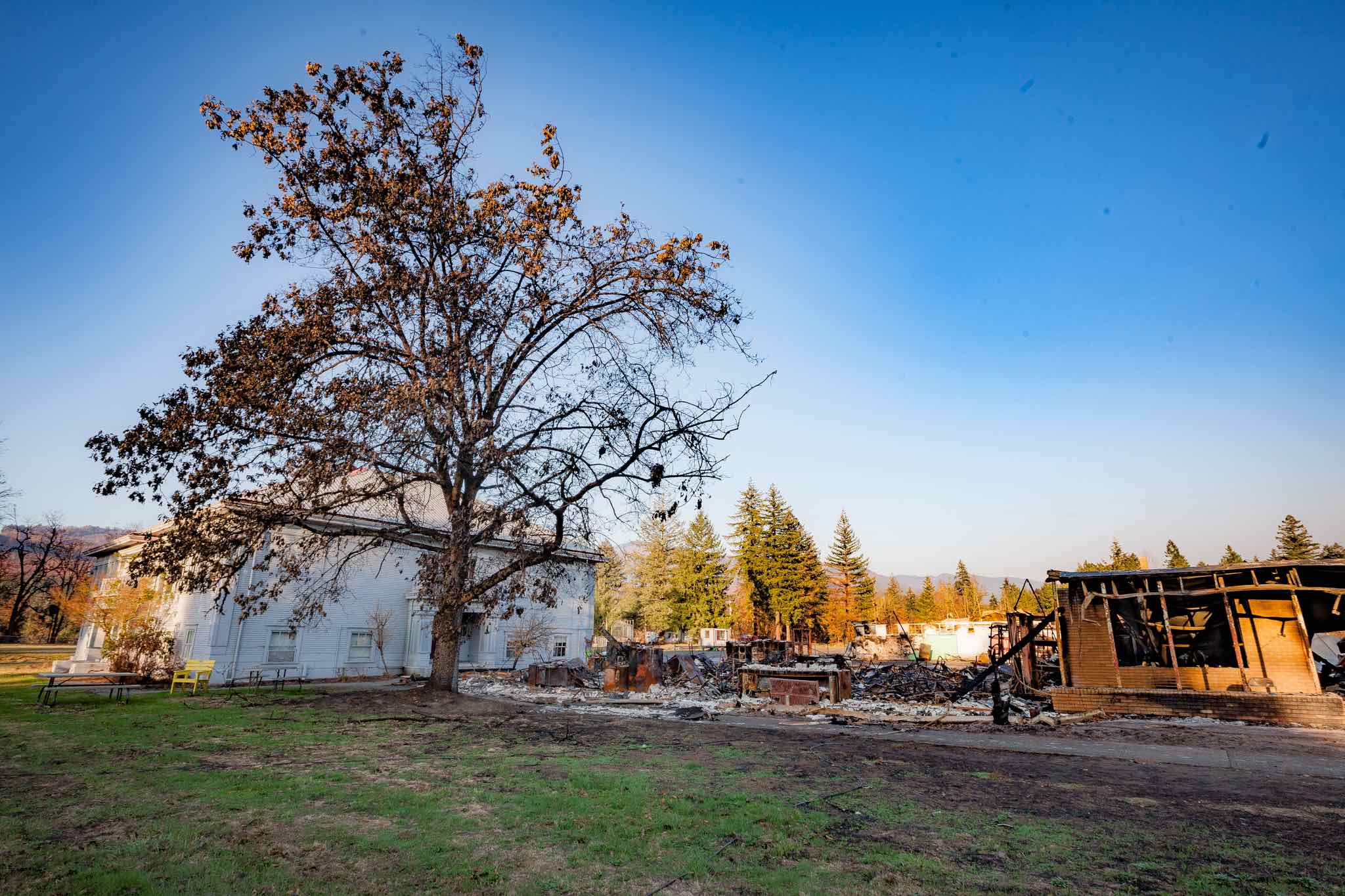Preservation is Reuse. Reuse is Climate Action.
Restore Oregon believes preservation and reuse play a crucial role in climate change mitigation and resilience: In 2020, we signed the Climate Heritage Network’s Memorandum of Understanding–a commitment to strengthen our efforts to address climate change and support communities in achieving the goals of the Paris Agreement. We recognize that the time is now to boldly move beyond traditional approaches to historic preservation to create an inclusive, equitable, and diverse preservation community—one that understands, celebrates, and embraces reuse as a climate change mitigation tool.
Buildings generate 39% of annual carbon emissions worldwide—more than industry or transportation. Embodied carbon–greenhouse gas emissions emitted from the manufacturing, transportation, installation, maintenance, and disposal of building materials–accounts for millions of tons of wasted resources year after year in the U.S. alone. This is an irretrievable loss of global proportion. By reusing an existing building (the U.S. has approximately 125 million, including 50 million that are over 50 years old), we can save between 50-75% of embodied carbon emissions compared to new construction.
Oregon’s current policies and lack of reuse incentives contribute to increased demolitions statewide. Preservation and reuse are the quickest, greenest paths to climate change mitigation, but they are being overlooked as part of the solution.
As Oregon’s only statewide nonprofit organization dedicated to advancing preservation and reuse, Restore Oregon is positioned to help reduce carbon emissions and mitigate climate change by advocating for building conservation, adaptive reuse, and retrofitting. We are dedicated to moving historic preservation into the larger conversation around climate change mitigation while implementing pivotal shifts in our organization’s programming. To accomplish this, we are working to correct the misconceptions about the role of historic preservation by collecting data, increasing access to resources for adaptive reuse, educating the public and elected officials, executing policy and advocacy work, and establishing ourselves as an environmental advocate and ally.
Externally, we:
- Promote the role of HP and adaptive reuse as the quickest, greenest climate mitigation solution.
- Increase community/policy-makers' awareness of adaptive reuse as a tool in climate change mitigation.
- Build partnerships with environmental organizations to support and educate each other.
- Advocate for policies incentivizing sustainable development practices, retrofitting, and reuse to contribute to Oregon's climate mitigation goals.
- Work to reduce the number of demolitions in underserved communities due to neglect, poor public policy, misallocation of resources, or intentional discrimination.
Internally, we:
- Commit to engaging in advocacy issues that prioritize equity, diversity, and climate mitigation, with statewide significance.
- Intentionally engage in ethnically and culturally diverse programming that represents the disproportionate effects of climate change in rural and underserved communities.
- Through our annual DeMuro Awards program, we prioritize projects that showcase how reuse is the most climate-friendly strategy for carbon reduction.
- Collect and use data on adaptive reuse of buildings for housing projects at all income levels and create a library of presentations, resources, tools, and data to share knowledge with policymakers and educate the public.
There is No One-Size-fits-All Solution to the Climate Crisis.
Restore Oregon is committed to the organizational programming and pivotal conversations that are crucial to conveying the role of historic preservation and reuse in our land use policies, development goals, and incentive programs. By working diligently to move beyond traditional approaches to historic preservation, we will see positive, measurable outcomes in climate change mitigation efforts in Oregon.


